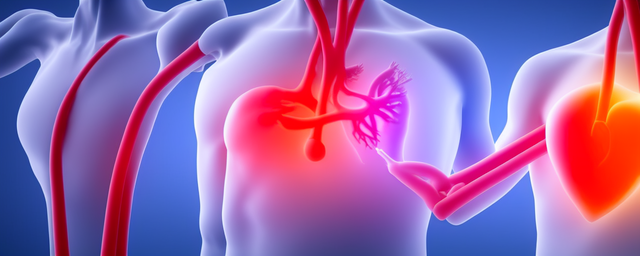
心脏早搏的危害
原|2024-04-26 15:40:59|浏览:38
Premature heartbeats, also known as premature ventricular contractions (PVCs) or heart palpitations, can be a common occurrence and are usually harmless. However, frequent or sustained PVCs can sometimes indicate an underlying heart condition and may pose certain risks and complications.
One of the main dangers of frequent premature heartbeats is the potential to develop more serious arrhythmias, such as atrial fibrillation or ventricular tachycardia. These abnormal heart rhythms can lead to symptoms like dizziness, fainting, chest pain, and even cardiac arrest in severe cases.
Additionally, frequent PVCs can weaken the heart muscle over time, leading to a condition known as cardiomyopathy. This can result in reduced heart function, heart failure, and an increased risk of developing other cardiovascular problems.
Chronic stress and anxiety caused by experiencing frequent premature heartbeats can also have negative effects on overall heart health. Stress hormones released during these episodes can contribute to high blood pressure, inflammation, and other risk factors for heart disease.
Furthermore, individuals with certain underlying heart conditions, such as coronary artery disease or structural heart abnormalities, may be at a higher risk of complications from frequent premature heartbeats.
It is important for individuals experiencing frequent or concerning heart palpitations to seek medical evaluation and treatment to determine the underlying cause and appropriate management. Lifestyle changes, medication, and in some cases, procedures like catheter ablation may be recommended to reduce the frequency of premature heartbeats and lower the associated risks.
Overall, while occasional premature heartbeats are usually benign, persistent or frequent occurrences should not be ignored as they can potentially lead to more serious heart issues and complications if left untreated.
猜你喜欢
- 茶的分类及代表品种
- 六大茶类的代表名茶分别有
- 茶的类型和代表
- 六大茶叶的分类及产地
- 庙的分类及代表
- 藻的分类及其代表
- 茶的分类及代表茶品特点
- 茶的分类及代表茶
- 简述茶类的分类及其代表性名茶
- 六大茶类的分类及代表茶
- 动物分类及代表
- 糖的分类及代表
- 茶的分类及代表茶叶
- 茶的分类及代表图
- 茶的分类及代表作
- 茶器按质地的分类及代表茶器
- 茶的分类及代表名茶教学设计
- 简述茶的分类及代表性名茶
- 请写出乌龙茶的分类及代表茶
- 法国雅文邑白兰地系列
- 雅文邑白兰地介绍
- 1952年法国雅文邑白兰地
- 法国雅玛邑白兰地
- 纽波利顿獒
- 法国犬品种
- 南非獒犬的优缺点
- 波尔多獒犬寿命
- 波兰狩猎犬
- 波尔多犬和罗威纳犬对比
- 波尔多犬和杜高对比
- 世界十大凶犬
- 护卫犬排行榜前十名
- 大红袍怎么泡效果好
- 大红袍怎么泡不开
- 大红袍怎么泡茶
- 大红袍怎么泡出来没颜色
- 大红袍怎么泡不苦
- 大红袍怎么泡多久
- 大红袍怎么泡才正确的特点
- 大红袍怎么泡没有柴味儿
- 大红袍怎么泡放多少合适
- 花香大红袍怎么泡
- 大红袍怎么泡茶好
- 大红袍是怎么泡的
- 大红袍怎么泡水好喝
- 大红袍用玻璃杯怎么泡
- 大红袍怎么泡味道浓一些
- 十大排名果花茶
- 十大花茶组合排名
- 十大花茶品种大全
- 十大花茶功效
- 十大花茶销量排行榜
- 十大花茶有哪些
- 十大花茶品种
- 十大花茶推荐
- 十大花卉排行榜
- 十大花卉
- 十大花茶调理内分泌
- 九五至尊秦昊明月关山
- 红茶冲泡工艺
为你推荐






































































